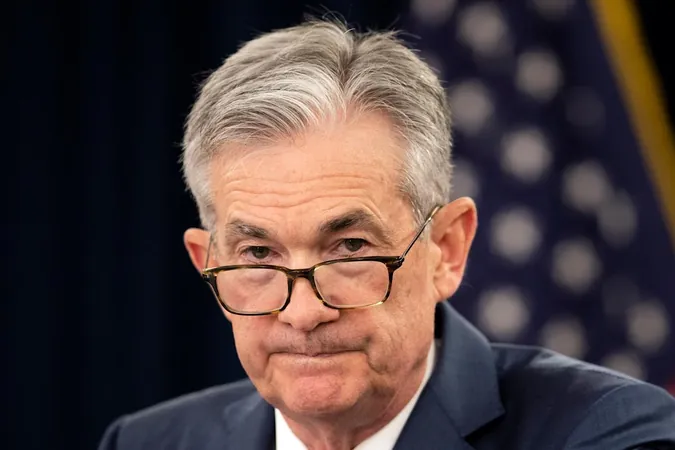
Trump’s Push for Fed Rate Cuts: Why It Might Backfire for Consumers
2025-04-25
Author: Chun
Trump's Pressure on the Fed and its Implications
President Donald Trump is persistently urging the Federal Reserve to slash interest rates, but experts argue that even if the Fed complies, it may not translate into lower borrowing costs for everyday consumers.
Economic Pressures Behind Interest Rates
Economists caution that Trump’s ongoing public criticism of Fed Chair Jerome Powell, coupled with his controversial tariff policies, may actually keep long-term interest rates—those that affect consumer loans—elevated. A Federal Reserve that appears less independent can lead investors to worry about potential future inflation, prompting them to demand higher yields on Treasury securities.
Rate Cuts: Short-Term vs. Long-Term
While the Fed typically lowers short-term interest rates during economic downturns to stimulate spending, the rates for mortgages, auto loans, and credit cards are significantly influenced by market forces. Recently, market reactions to Trump's tariffs have fueled inflation fears, causing long-term rates to climb instead of fall. This dynamic illustrates that simply cutting short-term rates may not yield the expected results.
Experts Weigh In on the Fed's Dilemma
Francesco Bianchi, an economist at Johns Hopkins University, emphasizes that there’s no guarantee a Fed rate cut would lead to easier borrowing conditions. "This pressure on the Fed might backfire if markets don’t believe the Fed can manage inflation effectively," he warned.
Recent Statements and Market Reactions
In a recent press conference, Trump reiterated his call for Powell to lower rates, labeling the current situation a "mistake." Alarmingly, he even floated the idea of firing Powell, putting further pressure on the central bank. This move triggered a notable drop in stock markets, a rise in the yield on 10-year Treasury bonds, and a dip in the dollar's value—an unusual reaction indicating investors were retreating from American assets.
The Importance of Fed Independence
Markets rebounded after Trump stated he had "no intention" of dismissing Powell, but the damage to investor confidence lingered. Many on Wall Street recognize the independence of the Fed as crucial for controlling inflation. An unpressured Fed can make tough decisions, like raising rates, without political pushback.
Investor Sentiment: The Risks of Political Interference
According to Lauren Goodwin, chief market strategist at New York Life Investments, "Threatening the Fed doesn’t soothe markets—it spooks them." This political pressure often backfires, leading to higher rates, diminished confidence, and increased market volatility, creating a cycle that no administration desires.




 Brasil (PT)
Brasil (PT)
 Canada (EN)
Canada (EN)
 Chile (ES)
Chile (ES)
 Česko (CS)
Česko (CS)
 대한민국 (KO)
대한민국 (KO)
 España (ES)
España (ES)
 France (FR)
France (FR)
 Hong Kong (EN)
Hong Kong (EN)
 Italia (IT)
Italia (IT)
 日本 (JA)
日本 (JA)
 Magyarország (HU)
Magyarország (HU)
 Norge (NO)
Norge (NO)
 Polska (PL)
Polska (PL)
 Schweiz (DE)
Schweiz (DE)
 Singapore (EN)
Singapore (EN)
 Sverige (SV)
Sverige (SV)
 Suomi (FI)
Suomi (FI)
 Türkiye (TR)
Türkiye (TR)
 الإمارات العربية المتحدة (AR)
الإمارات العربية المتحدة (AR)